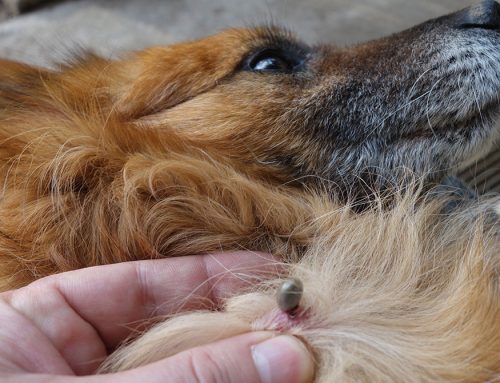Skin allergies can be incredibly uncomfortable for your pet. Inflamed, red skin and constant itching can lead to sore, open wounds that overtime may become infected. Allergic dermatitis, or skin allergies, can cause other secondary issues like ear infections as well. Consistent head shaking and digging at the ears are common signs of irritation in the ears. Other symptoms of allergic dermatitis include: excessive licking, chewing, and biting one or multiple places on their body such as feet, groin, and abdomen.
We are very grateful that despite the inability to cure an allergy, we can provide maintenance care for the management of symptoms associated with skin allergies, as well as medications that suppress the allergic response system. Immunosuppressants are long-term medications that can be given to help manage symptoms over time. Options include Apoquel and Cytopoint, which target specific pathways in the body’s allergic response. Let’s dive into these immunotherapy drugs and discuss how they work and what results look like for pets using them.
What is Apoquel?
Apoquel, oclacitinib, can be used for acute flare-ups of skin allergies and chronic allergy management. Apoquel is approved for use in canines, but scientists are currently exploring the use in felines too. It is specifically targeted to control itch and inflammation due to allergic and atopic dermatitis.
Apoquel is designed for use in dogs 1 year or older, which is generally around when you would begin to see allergic dermatitis symptoms appear if your pet is sensitive to their environment. Symptoms can start to show signs of relief as early as 4 hours after giving a dose. This medication is great for dogs who are food-motivated and willing to take an oral tablet once to twice a day.
What is Cytopoint?
Cytopoint, lokivetmab, is also referred to as “Canine Atopic Dermatitis Immunotherapeutic, or Cadi”. Cytopoint injections are long-acting treatments that simplify allergy management. It can relieve itching within 24 hours and lasts for 4 to 8 weeks, depending on the severity of the allergies.
Unlike Apoquel, Cytopoint can be given to dogs of all ages. Cytopoint is great because it does not have to be given daily, making it easier for dogs who are not food-motivated or who struggle with taking oral medications. It is also great for lifelong disease management, commonly used to treat atopy. Atopy is the genetic tendency to develop an allergic disease.
How Do They Work?
Apoquel works to inhibit the enzymes in cells that would receive signals from small proteins that tell your pet they are itchy. It works differently than steroidal treatments by targeting specific cytokines (small proteins) that cause itch and inflammation, and turns them off. This “inhibits” the itch response that would normally occur.
Cytopoint is a monoclonal antibody that works like your dog’s own immune system. It is also designed to target and neutralize a cytokine that sends itch signals to the brain. This alleviates the pet’s need to scratch or chew because there is no itchy sensation.
Administration
Apoquel is given as an oral tablet, or chewable, twice daily for the first 14 days. After the initial 14 days, depending on the severity of the skin allergies, your veterinarian may increase or decrease the dosage to find the best dose for your pet’s allergies. Apoquel can be given with or without food, and studies show that 91.6% of the chewable tablets were accepted voluntarily within 5 minutes of offering it to the dog.
Cytopoint is given once every 4 to 8 weeks as a subcutaneous injection. Cytopoint must be administered by a veterinary professional, and will require an appointment for administration. However, you do not have to give this medication daily. Visits to the vet would range from once a month to once every 2 months based on your pet’s needs.
Results
When looking at the results of these medications, the data speaks for itself.
Studies show that 98% of pet owners administering Apoquel found that it improved their dog’s quality of life. 96% said that Apoquel improved the owner’s life as well, and that 90% would recommend Apoquel to a friend.
For Cytopoint, the studies show that over 50% of dogs have itch relief within 24 hours. By 48 hours this increased to over 70%, and by 72 hours over 80% of the dogs experienced itch relief. When owners were asked to access their dogs on Cytopoint, a majority reported that by day 3, the itch level became mild to very mild.
A study done in 2019 showed that there was a 65% treatment success after the first injection, an 85% success after the second injection, and a 93% success by the third injection. 82% of dogs with allergic dermatitis due to an unknown cause had successful treatments as well. Food allergies and atopic dermatitis also show success with Cytopoint treatment.
If your pet is experiencing allergy symptoms, please consult your veterinarian. Allergies can be very difficult for you and your pet to deal with and we are here to help relieve their discomfort and make allergy management as easy as possible.












